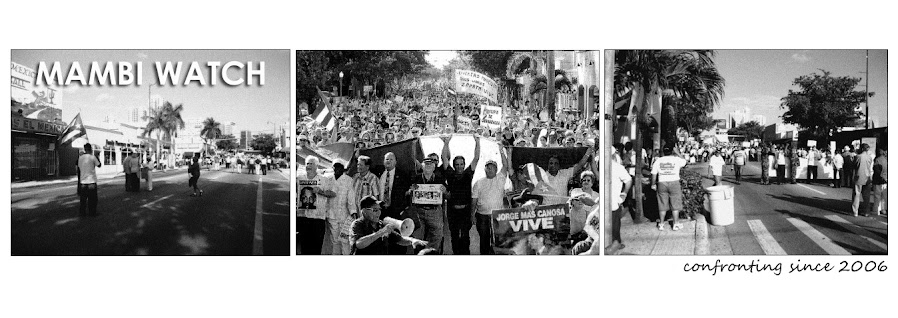 Alfonso Chardy, Jay Weaver and Oscar Corral of the Miami Herald today share new facts on the developing case of Luis Posada Carriles.
Alfonso Chardy, Jay Weaver and Oscar Corral of the Miami Herald today share new facts on the developing case of Luis Posada Carriles.Basically adding little and new information from a November 2006 article (by Chardy and Weaver), the Herald reporters write that an "extraordinary effort at cooperation" has taken place between the Cuban government and the FBI. They continue:
"Three federal law enforcement officers familiar with the case described the trip [to Cuba] as 'pretty amazing' and 'unheard of' because Cuba had for years blocked FBI access to witnesses, crime scenes, forensic evidence and more information in the bombing."
There's a good reason that Cuba blocked the FBI in the past. In 1998, the Cuban government invited the FBI to share gathered evidence on terrorism against Cuba originating from Miami. They presented "331 pages, record sheets of 64 known terrorists, 4 hours and 38 minutes of secret filming and 21 telephone interceptions." About 3 months later, the FBI detained the "Cuban Five" (WASP Network) who gathered some of the evidence. By the time the trial against the Five began in 2000, Cuba blocked the FBI from any more investigation.
Chardy, Weaver and Corral write that this time the FBI "agents were able to interview witnesses, review Cuba's forensic evidence -- including bombing materials -- and visit crime scenes."
Most of today's article is based on the Nov. 2006 article that highlights the 10-page affidavit by the Justice Department of June 2005. An FBI special agent, Thomas Rice, is quoted in the affidavit as saying that "the FBI is unable to rule out the possibility that Posada Carriles poses a threat to the national security of the United States." Rice is also reported as describing Posada Carriles "as a dangerous man bent on killing Castro and spreading terror on the communist-run island to destroy its tourism economy." If it is found that Posada Carriles is in fact a "threat to national security," then he runs the risk of being indefinitely detained under the Patriot Act.
The evidence against Posada Carriles that is found in the June 2005 affidavit can be best read in the November 2006 article. In addition, todays online Miami Herald article has links to several PDF's that are worth reading related to the Posada Carriles case.
In the meantime, the federal grand jury in New Jersey continues to gather evidence on the crimes of Luis Posada Carriles, as the latter waits his immigration trial on May 11, in El Paso.

No comments:
Post a Comment